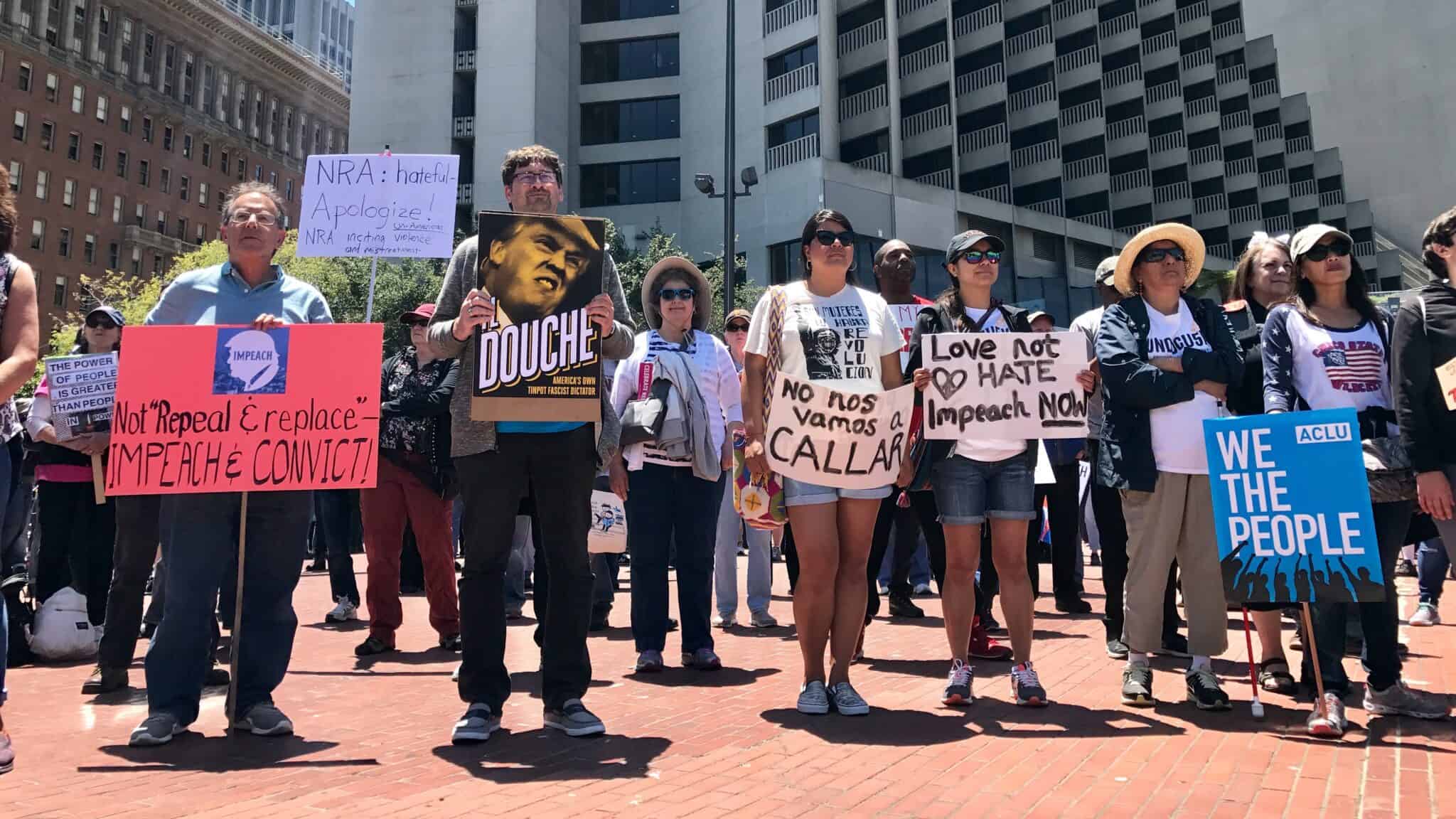
Courtney Brunson is a student at Harvard Law School and member of the Harvard Legal Aid Bureau.
As the House begins proceedings to impeach President Donald Trump a second time following his role in emboldening the violent mob that stormed the Capitol last week, Refinery29 writer Whizy Kim recently uplifted the informational TiKTok video from user Jessica Jin, who explained that possible replacements for the damaged government furniture from the Capitol attack could come from pieces created by incarcerated people. Jin talks about Federal Prison Industries (FPI), also known as UNICOR, which is a government-owned corporation that uses prison labor to produce everything from office furniture to awards and plaques. FPI is reportedly a “mandatory source” for government agencies, meaning it must be given priority when the government is considering the purchase of goods of the kind that FPI manufactures, such as office furniture. Though there are exceptions to this process, it remains important to consider how prison labor supports the functions of all aspects of our government.
Bloomberg Law reported today that one of the side effects of a greater amount of Americans working from home throughout the coronavirus pandemic is higher rates of whistleblowing. According to data from the U.S. Securities and Exchange Commission (SEC), there has been a 31% jump in white collar malfeasance allegations from the previous 12-month record. SEC officials stated that these allegations began to gain steam in March, as millions of workers stopped coming into the office to work. The article attributes this change to workers questioning the allegiance and dedication of their employers to their wellbeing as well as their increased confidence to speak out against managers and coworkers that are no longer physically overseeing them.
Jordan Thomas, a former SEC official who helped set up the agency’s whistle-blower program a decade ago and now represents whistleblowers as an attorney at Labaton Sucharow said the following: “It’s never been easier to record a meeting when you can do it from your dining room table.” Though these tips have risen in the past year, they were only possible because the 2010 Dodd-Frank Act gave the SEC the ability to pay whistle-blowers. Under the program, tipsters can receive financial awards – if they voluntarily provide unique information that results in an enforcement action – that can range from 10% to 30% of the money collected in cases where sanctions exceed $1 million.
However, not all whistleblowers are given financial awards. Many face retaliation from their employers for speaking up. Flying Magazine recently profiled Delta Air Lines first officer Karlene Petitt, who claimed that she was discriminated against after she reported a number of pilot fatigue and other safety issues at the airline to top management in 2016. Shortly after her report filings, the airline sent her to a company psychiatrist that diagnosed Petitt with bipolar disorder, a “medically disqualifying condition” for a cockpit crewmember. Yet after she was removed from flying status for more than a year in a half, she was subsequently found in later examinations to not suffer from that condition. After years of litigation, the Department of Labor (DOL) granted relief to Petitt on December 21, 2020. She received $500,000 to cover back pay and other benefits and returned to flying status.
Jim O’Sullivan, U.S. macro strategist for TD Securities, stated yesterday following the release of the DOL’s most recent monthly report that the labor market will take years to fully recover from its pandemic era losses – even as the COVID-19 vaccine is distributed. In an interview with Yahoo News, O’Sullivan explained that the labor market will need to recuperate from the lost jobs during the pandemic and create jobs for those who joined and will join the working-age population and labor force during the recovery. According to the DOL, job losses since last February have amounted to 9.8 million to date. Erik Sherman of Forbes broke down the DOL’s monthly report even more by explaining that the leisure and hospitality industry alone lost 498,000 jobs. He also pointed out that the amount of part-time – rather than full time workers – has increased by two million to 6.2 million from where it was in December 2019.






Daily News & Commentary
Start your day with our roundup of the latest labor developments. See all
July 2
Block, Nanda, and Nayak argue that the NLRA is under attack, harming democracy; the EEOC files a motion to dismiss a lawsuit brought by former EEOC Commissioner Jocelyn Samuels; and SEIU Local 1000 strikes an agreement with the State of California to delay the state's return-to-office executive order for state workers.
July 1
In today’s news and commentary, the Department of Labor proposes to roll back minimum wage and overtime protections for home care workers, a federal judge dismissed a lawsuit by public defenders over a union’s Gaza statements, and Philadelphia’s largest municipal union is on strike for first time in nearly 40 years. On Monday, the U.S. […]
June 30
Antidiscrimination scholars question McDonnell Douglas, George Washington University Hospital bargained in bad faith, and NY regulators defend LPA dispensary law.
June 29
In today’s news and commentary, Trump v. CASA restricts nationwide injunctions, a preliminary injunction continues to stop DOL from shutting down Job Corps, and the minimum wage is set to rise in multiple cities and states. On Friday, the Supreme Court held in Trump v. CASA that universal injunctions “likely exceed the equitable authority that […]
June 27
Labor's role in Zohran Mamdani's victory; DHS funding amendment aims to expand guest worker programs; COSELL submission deadline rapidly approaching
June 26
A district judge issues a preliminary injunction blocking agencies from implementing Trump’s executive order eliminating collective bargaining for federal workers; workers organize for the reinstatement of two doctors who were put on administrative leave after union activity; and Lamont vetoes unemployment benefits for striking workers.